Walking down South Congress businesses like Monkey See Monkey DO!, Jo’s Coffee and the Austin Motel are some of the iconic locations that make up the heart of downtown Austin, but as competition and challenges increase for many local businesses—including corporations buying out space—concerns regarding Austin’s unique culture and originality continue to arise. This raises the question “Is Austin still weird?”
In 1959, Zilker Theatre Productions launched its first hillside musical with a production of “Seventeen” originally charging a fee for entry to cover production cost. Two years later the event would become free to the public after receiving funding from the city, becoming a staple in Austin entertainment and tradition. After 63 years, Zilker now faces critical risks of continuing its free of charge musicals, needing to raise $300,000 by December for the 2025 show.
In 2021, junior Andrew Tran performed for Zilker as Crutchy from “Disney’s Newsies” in front of crowds as large as 5000 people, during its production, the company faced struggles with its funding, In a statement released by the City of Austin regarding their funding process, they explained that the demand for funding often exceeds the amount available, treating all applicants in a competitive and equitable process.
“I think coming out of COVID, they didn’t have funding from the city,” Tran said. “During my year, we did it without city funding and that basically showed the city of Austin that we were able to do it without. So then they just completely withdrew, which is not what we wanted to happen.”
Tran’s earliest memory of Zilker was at 8-years-old during “Little Shop of Horrors.” He now attends every year to support and watch, believing it is a staple for Austin’s culture.
“The director brings up every year the story of this letter that a homeless family wrote,” Tran said. “The story is that they came down to watch the musical one night and it showed their kids what the possibilities were. It basically said, ‘Hey maybe one day you can do this.’ And that’s, that’s their way of saying, ‘Go out there and perform your best every night, because you’re impacting people’s lives and you’re giving them an escape from reality for two and a half hours. And that’s your job, to go make people smile.’ I think that’s why it’s important, because it’s free and it’s just really good for Austin overall.”
Being Tran’s first musical, the experience led him to have more opportunities in his career and helped educate him for future shows.
“I think they did a really good job of teaching me a lot of different things that I would need to know if I ever did musicals in the future,” Tran said. “They were very kind about it and you get a lot of eyes, the news sources come as well. Trevor Scott came and he invited me onto his show, so I got to talk to him and it was really fun.”
Tran believes the closure would be a tragedy, not only ending a tradition but impacting a lot of people.
“It’s just something that’s so inherently Austin that it’s gonna feel like a major loss to see it go away,” Tran said. “The motto, ‘Keep Austin weird.’ I like it because it embraces individuality. And I think Zilker really embraces individuality as well as just kind of doing what you love. So that’s why the two of them work together so well.”
Lucy in Disguise with Diamonds opened in 1984, the business was 8,000 square feet and located on South Congress. It carried costumes that could be rented or bought year round, along with accessories to accompany them. In August of 2022, the business announced it would be permanently closing by the end of the year for various reasons, including a loss of vendors and lack of parking availability.
In the mid ‘90s, McNeil parent Denise Garza worked at Lucy in Disguise for a month during the Halloween season, one of four jobs she was working at the time.
“It was Halloween and I’d heard a lot of really good things about the store and I wanted to check it out,” Garza said. “I had been there before, but I had heard it was fun to work at and so I gave it a try. It was a blast. It was hilarious. I worked more in the accessory part and it was fun, you’d get all kinds of weird people.”
Garza believes that over time the city has become more corporate, seeing a decrease in the amount of unique local stores now compared to the ‘90s, including Lucy in Disguise.
“I think as far as keeping Austin weird, that was definitely one of the facets that would fit into that,” Garza said. “You had a lot of little boutiques like that, that had their own personality that made Austin such a gem to come visit. It was a successful business, but it was also quirky.”
Senior Paige Robertson had been visiting Lucy in Disguise with her family from a young age, often spending a day downtown going to Lucy in Disguise, Big Top Candy Shop, Monkey See Monkey Do!, then Homeslice Pizza and Amy’s Ice Cream.
“I went there a lot when I was a kid, especially around halloween, because they had a lot of the stuff we were looking for,” Robertson said. “It was a fever dream honestly, it was crazy, they had stuff on the ceilings and the walls and they had all these different rooms, it was like an endless maze that just kept going.”
Robertson feels that Lucy in Disguise reflected some of her interests. Being a member of theater, she enjoys costume design and specifically took interest in the wide selection of shoes the store had.
“My most favorite part was their shoe room because they had a bunch of different heels and I love high heels,” Robertson said. “It would be like a clown shoe and sparkly red ruby shoes like in Wizard of Oz.”
After Robertson’s mom informed her, she was able to visit the store before its closure. Following the upsetting news, she now fears for the future of Austin’s individuality.
“I got a chance to go one last time and shop around, I got a patch that’s on my backpack now,” Robertson said. “‘Keep Austin Weird’ used to be something that I lived by and now it’s kind of just a lot of influencers and big brands. I think it’s fitting us into a box, like we don’t have any shape.”
In 1948, the Dismukes family opened “Varsity Springs” a local mini golf business, a few years later they would rename the establishment to Peter Pan Mini-Golf, over time transforming into a 36 hole putt-putt course filled with hand sculptured characters that quickly become an austin landmark.
Over the past 75 years, Peter Pan Mini-Golf has had a series of 20 year long lease renewals, until last year when concern rose due to lease renewals turning short term. The establishment was granted a lease of six months, ending Sept. 30. After a renewal, the business’ current lease is set to end March 31.
Owner of Peter Pan Mini-Golf Margaret Dismukes believes keeping the business open is important for the generations of people who have visited before and for the generations to come.
“People love the nostalgia of coming back year after year,” Dismukes said. “In 2023, upon hearing news reports that we could possibly lose our lease, a concerned fan of Peter Pan Mini-Golf created a petition ‘Save Austin’s Peter Pan Mini Golf.’ To date, that petition has received more than 26,000 signatures.”
To keep the business open, Dismukes continues to work alongside trustees that manage the property and is in the early stages of attempting to convert the land into a Austin Historic Landmark.
“Although we have been part of several discussions with city leaders about this, we are still early in the process,” Dismukes said. “Our goal is absolutely to secure a new multi-year lease. We remain very optimistic about the future of Peter Pan.”
Peter Pan Mini-Golf has been a pillar for Austinites since its beginning, whether that’s from hosting events such as birthday parties or corporate outings, to their regular donations to a multitude of local charities, the business benefits the local community in copious ways.
“It was really comfortable playing, especially because I went when I was a kid,” senior Gavin Odom said. “So I’m kind of used to it. And it’s simple, it makes me feel at home, it’s a nice comfortable place I can play mini golf.”
Long time Austin business owner Lynn Raridon has owned multiple establishments in the past 37 years, including a tattoo and piercing salon. Living in Austin since 1979, she foresaw its transition into a world class city ever since she first moved to Austin, but maintains the importance of preserving local businesses, including Peter Pan Mini-Golf.
“I’ve been keeping up with Peter Pan, obviously another iconic Austin institution,” Raridon said. “I shot a music video there with a band called the ‘Butthole Surfers.’ Gibson Haynes was a friend of mine.”
Raridon believes that the spike in population is due to the increase of tech innovation over the last 20 years, with a number of well known companies settling offices and headquarters in Austin.
“Austin is still very much prized, a cool hip place to be,” Raridon said. “My only concern is when all of these people move here from other places, I have one word for them and that is assimilate. Why are you coming to Austin? Because it’s cool. It’s so open and people are so friendly. Come here, match and assimilate and add to our culture. Don’t try to change it.”
As a property owner on North Loop, Raridon tries to keep the rent affordable for her tenants so they don’t have to move, only increasing the cost when her property taxes increase.
“I wish there were more people who would get in there and actually buy the property and keep the rent affordable, because that’s what I’m trying to do.” Raridon said. “It’s the gentrification and it’s in some ways that long, slow march. But it doesn’t have to be inevitable if you get the right people in there. That’s why it’s important to me.”
Monkey See Monkey Do! and Big Top Candy Shop owner Brandon Hodge first moved to Austin in 1996, opening his first store in 2005. Since then, he faced a wide array of challenges, with a more recent one being post pandemic recovery.
“Pandemic recovery has been a really difficult time for those businesses who managed to make their way through it,” Hodge said. “PPP loan was certainly, without a doubt, a massive boom that kept so many businesses alive. I’ve always been very grateful to that program for doing what it did.”
The Paycheck Protection Program (PPP) and other grants helped aid companies through financial issues through COVID, enabling small businesses to be able to stay afloat until society was able to transition into in person shopping again.
“The post pandemic rent spikes, there’s a dichotomy between the small businesses and the big corporations that had the money to sit there and idle,” Hodge said. “A small business doesn’t have that opportunity. Once your cash flow stops, once the commerce stops, that’s it. And so that’s why we saw so many small businesses fold during the pandemic”
Corporations began to buy land formerly occupied by small businesses, paying an inflated price, causing many landlords to take notice of what corporations were willing to pay and adjusting their own prices.
“Big businesses see where the cool areas of town are, they’re usually these shopping districts like South Congress and West Village in New York being a classic example,” Hodge said. “Where the small business has made this super cool, super vibrant, super locally based small business community and it creates a certain capital of coolness. And it’s only a matter of time before an area carries a certain economic weight that [corporations] want to be a part of.
Hodge believes that local businesses closure is inevitable, stating “It’s sort of the cycle of life. You can either resent it, you can embrace it, or you can try to split the difference.” Despite this, he still tries to protect small businesses as much as he can and has been the President of South Congress Merchants Association for about 20 years.
“I’ve tried to be heavily involved in guiding small businesses, protecting small businesses and keeping pace with the rapid changes to Austin,” Hodge said. “In a way that helps enshrine the ever diminishing handful of small local businesses that call this city home.”


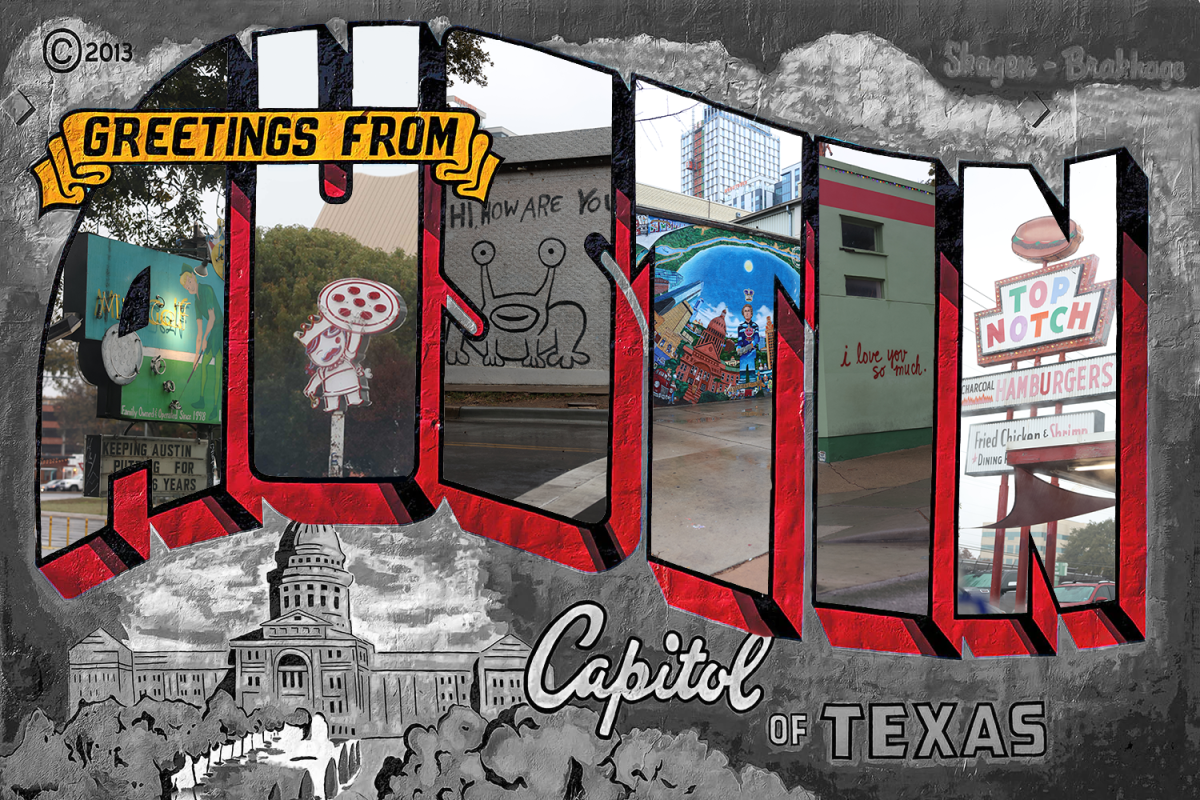
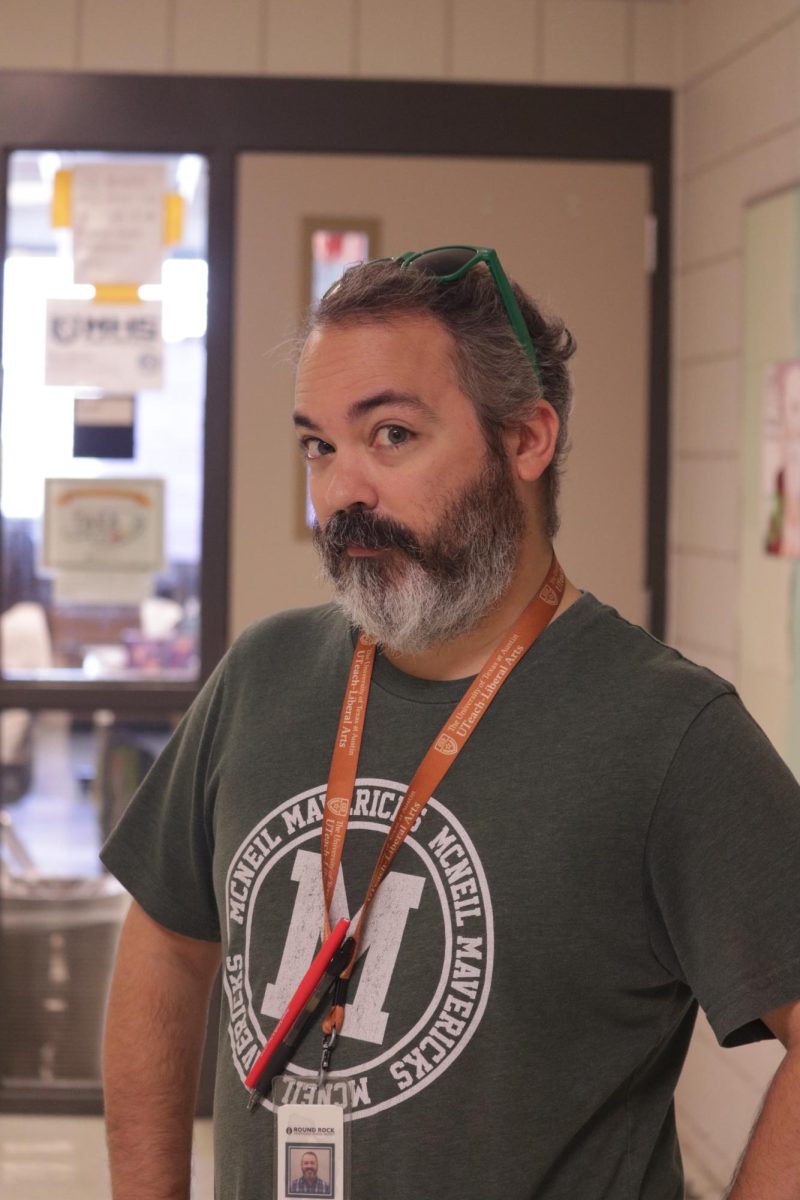
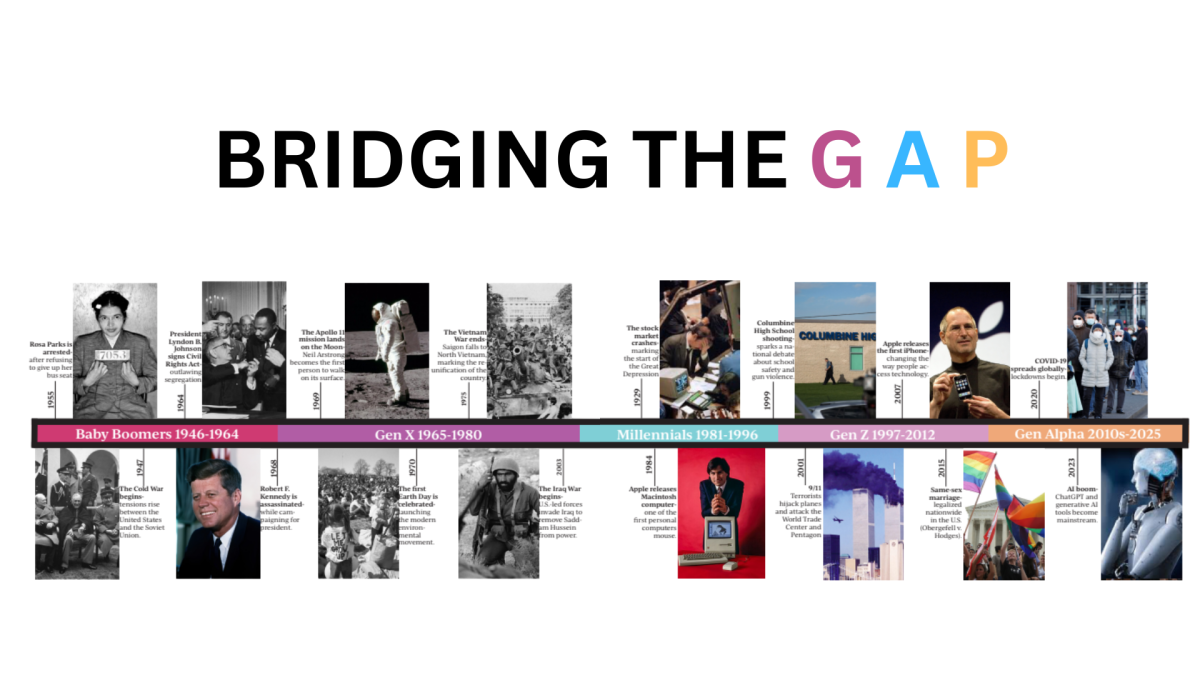

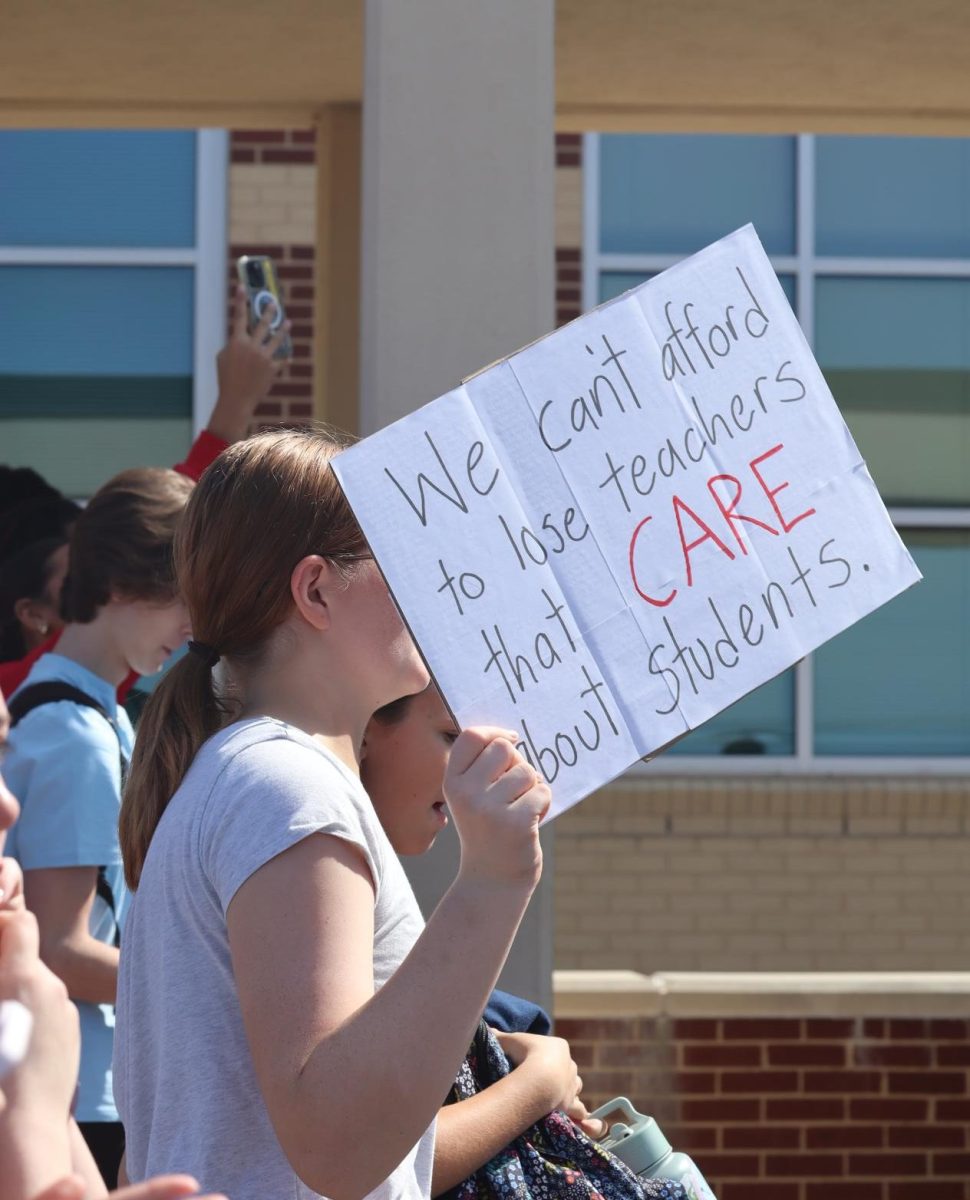

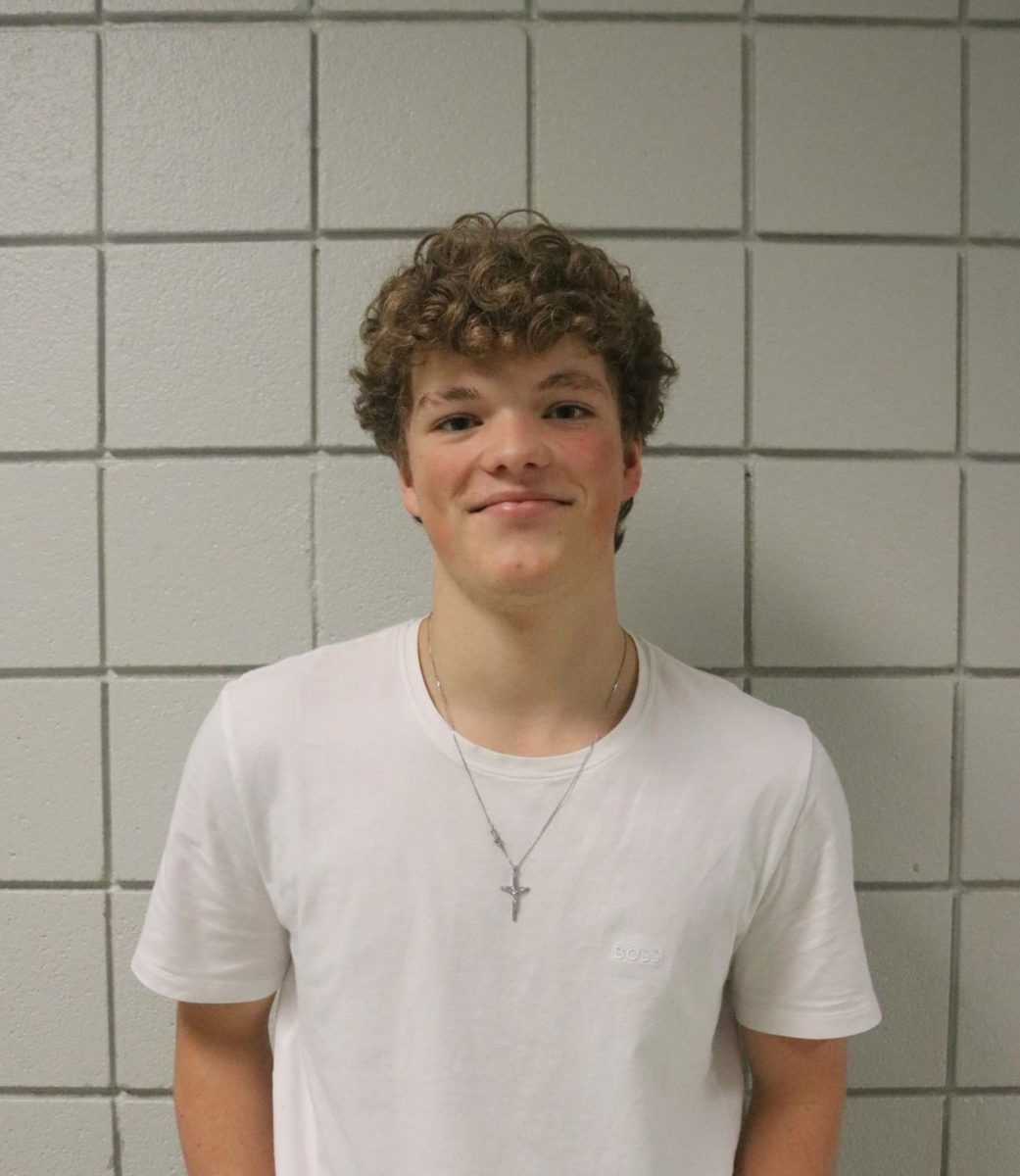


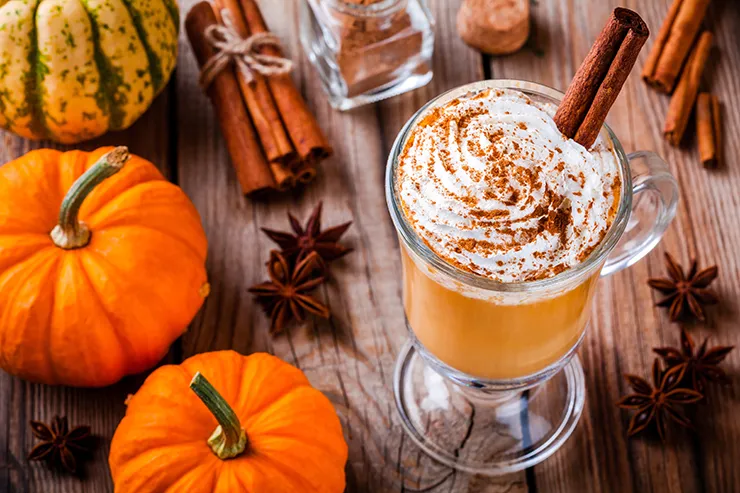


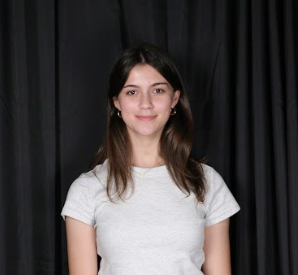
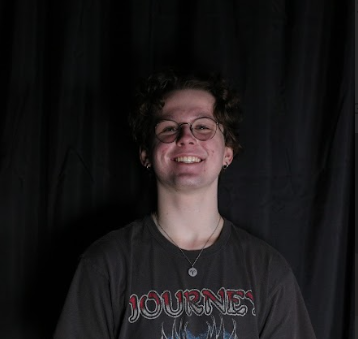
Denise • Dec 17, 2024 at 8:47 pm
Great Story, Hannah! Thank you for putting a spotlight on all we love about Austin.